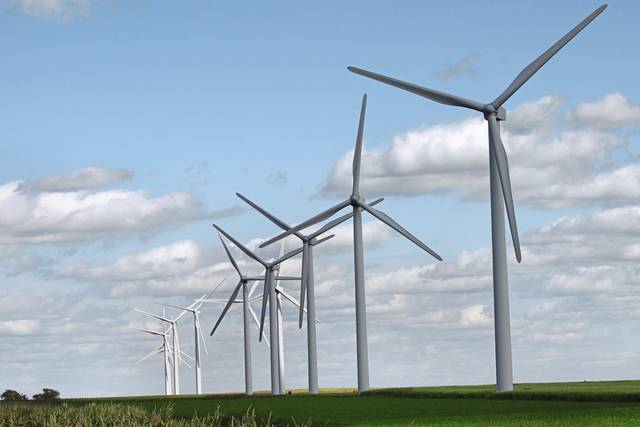“Green” energy proposals are no economic therapeutic for Pennsylvania. They’re snake oil miracle cures that ignore the realities of physics — and people’s needs.
In January, the Political Economy Research Institute “reimagined” Pennsylvania in a 135-page document that proposed spending billions of dollars on so-called renewable energy to restore the state after the covid-19 pandemic. Three months later, a Philadelphia Inquirer editorial advised the state to “manage the decline” of natural gas while investing in “high-paying green union jobs” to make up for lost employment.
Before the Keystone State gets “reimagined,” policy makers must consider the facts. Specifically, the laws of physics outlined in a Manhattan Institute analysis aptly titled “The ‘New Energy Economy’: An Exercise in Magical Thinking.”
Report author Mark Mills notes that fossil fuels provide 84% of the world’s energy while solar, wind and batteries provide only 2%. In promising a reversal of roles, Green New Dealers conflate the potential for efficiency improvements in so-called green technologies with orders-of-magnitude advances in output. But physical limitations preclude the efficiency gains that would be necessary to overtake traditional sources.
Over 30 years of operation, $1 million invested in a shale gas rig will produce six times as much electricity as an equal amount invested in either wind turbines or solar panels, Mills says. The potential for batteries is at least as bleak: “It would require 1,000 years of production (at the Tesla Gigafactory) to make enough batteries for two days ’worth of U.S. electricity demand.”
It turns out, the natural limitations of sunshine and wind are as unyielding as gravity.
Then there is pesky old economics. People need affordable, plentiful energy to thrive. The transition to more energy-dense fuel — first coal, then oil and natural gas — has raised quality of life for billions. Nuclear fuel is a promising next step. But “green” technologies like wind turbines would be a step backwards to less energy-dense sources.
The continued need for fossil energy has been underscored by Raj Kumar Singh, India’s minister for power. Achieving the much ballyhooed “net zero” carbon emissions “is just pie in the sky,” said Singh.
“(Y)ou have 800 million people who don’t have access to electricity. You can’t say that they have to go to net zero. They have the right to develop, they want to build skyscrapers and have a higher standard of living. You can’t stop it,” he said.
Which brings us to Pennsylvania’s natural gas industry and its thousands of jobs, billions in profits and tax revenues, and lower energy prices. The day the Inquirer presaged the death of this golden goose, the Pittsburgh Business Times reported record prices for natural gas liquids — a lucrative byproduct of gas production: “Range Resources Corp. saw the highest average premium it has ever received for a barrel of natural gas liquids (NGLs) in the first quarter, a strong sign for the big Marcellus Shale producer as it gets set for an increase in capacity on the Mariner East (pipeline). Range has extensive contracts and business in NGLs, which include ethane, propane and butane.”
From what alternate universe is the Inquirer playing a funeral dirge while one of Pennsylvania’s producers experiences greater demand for its products?
“There is a very strong market for NGLs domestically and internationally,” says Joe McGinn, vice president of public affairs and government relations for Energy Transfer Partners, owner of the Marcus Hook Industrial Complex south of Philadelphia. “An important point for understanding NGL markets is that even if you went to 100 percent electric vehicles tomorrow, it would do little to diminish demand for NGLs because they are needed in the production of petrochemicals.”
Meanwhile, “green” energy employment is best known for not-so “shovel-ready” jobs from billions spent on failed Solyndra-style projects under the Obama administration.
“Tradespeople report that they consider projects in oil and natural gas to have better perceived wages, benefits, and opportunities than renewables projects,” according to a 2020 report published by North America’s Building Trade Unions. “They also report that the oil and natural gas industries offer projects with longer durations than those in renewables industries.”
The pie-in-the-sky, magical thinking of the “greens” is recklessly ruinous and should be rejected by policy makers.
Gordon Tomb is a senior fellow at the Commonwealth Foundation, Pennsylvania’s free-market think tank.








